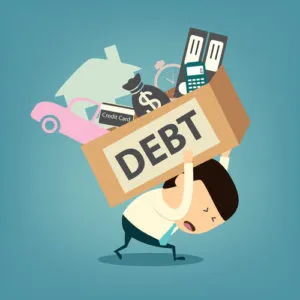
The vast majority of users on Hive are pretty well educated in terms of Hive mechanics, which is honestly quite impressive. Imagine if Facebook or Twitter users spent that much time trying to learn the ins and outs of those networks.
It's difficult to make such a comparison because WEB2 by in large are closed networks and the devs go to great lengths to make onboarding and using the system as easy as possible, but still most people are not willing to put in the work to figure these things out. Everyone wants a magic pill. Everyone wants instant gratification. Maybe we'll get to that level of streamline with crypto one day, but that day is pretty far off.
Also there isn't a single WEB2 product that has its own inherent currency and transfer of value system. Why? Because the banks and governments around the world simply do not allow it. There were even a couple digital currencies that popped up during the DOT COM era but they were quickly squashed by regulatory agencies. A predictable outcome to be sure.
Bitcoin has flipped that entire paradigm on its ear. You can't send Bitcoin a court order; it's not going to listen or obey. Bitcoin makes its own rules and governs itself by those rules. It is a self-sovereign digital nation.

Bitcoin is very much the WORLD TREE of crypto.
It essentially gave birth to every cryptocurrency in existence. Unfortunately (or fortunately) World Trees usually end up dying, leaving its orphaned children left behind and future generations wondering how it actually all came about in the first place. Obviously we won't live to see it. Neither will our children or our children's children. It's the long long-game.
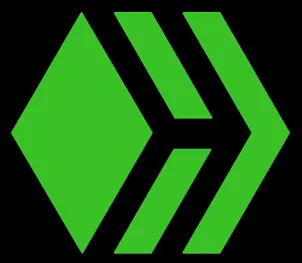
In any case...
The vast majority of Hive users know about HBD, and quite a big chunk of those users know how it works as well, which again, is impressive. However, perspective is everything, and you'll notice my title that HBD is not debt; despite all of the descriptions of HBD being referred to as Hive's debt. I myself flip flop on this concept all the time whenever it suits me. Sometimes I refer to HBD as Hive's debt, and sometimes I do the exact opposite, all depending on the context of the situation. Today we will be focusing on the counter-perspective.
What is debt even?
Debt is actually a very strange concept. Average Joe will tell you debt is a credit card bill or a mortgage payment. You borrowed money from the bank and you owed it back with interest. Okay... well if that's what debt is then... how is HBD debt? It's not owed back to anyone. It's new money. New money is not debt.
However, once we start to look beyond Average Joe's take on what debt is things start becoming a little more clear... or actually they get more convoluted, confusing, and contradictory. Welcome to finance! Once we learn a bit more about the banking sector we suddenly realize that ALL MONEY is debt. The entire legacy system is a debt-based ledger, which again is the opposite of new money crypto.
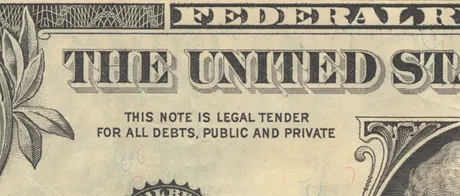
FOR ALL DEBTS
Banknotes are debt. The cash in your pocket is debt. How can that be? The money in your pocket is your money! It's not debt! You own it. Yes, this is true: you own it.
But what you own is actually someone else's debt.
Mathematically and statistically someone else needs those banknotes to pay back their debt to the bank that created them. In fact, they need your banknotes, plus interest, so the amount of money owed back to the banks will ALWAYS be more than the current circulating supply.
That sounds... unsustainable.
Yeah, it totally is, unless the economy experiences constant expansion: Which actually is normally the case. Economic contraction is the outlier. So much so that when it happens we get a recession every time. All debt-based systems lack any kind of balance and depend on constant progress and expansion to occur. The gains of the future are syphoned into the legacy system's pockets by those sneaking vampires we call bankers.
So again, does any of this sound like HBD?
Kind of? Within this context we can see that HBD being debt sort of makes sense because money in your pocket can still be debt, but that's actually not even why HBD is called debt in the first place. HBD is labeled Hive's debt because Hive is the backstop collateral that ensures HBD holders won't end up holding a worthless bag of vaporware.
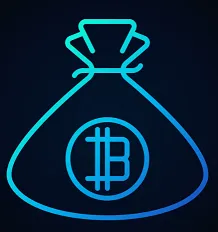
The only reason HBD is referred to as Hive's debt is due to the collateral backstop in play that allows HBD to be converted back into hive over a 3.5 day period of time. It's actually a very sneaku and smart way to do business.
After all, the vast majority of Hive emissions/inflation are issued through the reward pool. Wouldn't it be nice to cut those emissions in half and issue a stable derivative token instead? That's exactly what HBD does. It can be traded back for Hive and it is a derivate asset that represents an outsourced inflation rate, and thus it is referred to as Hive's debt.
But it isn't Hive's debt.
Because what do all debts have in common?
- The debt is owed back to someone.
- That someone is owed interest in addition to the principal.
HBD has neither of these things.
One might try to make the argument that well actually HBD is debt because the person that is owed back the money is the person holding the HBD, and the money that is owed to them is Hive. This is incorrect because it intrinsically assumes that Hive is money and HBD is not; they are both money and are both transferred around in the exact same way (active key authority).
This line of thinking also inherently assumes that eventually all HBD will be converted back into Hive, which is also quite false. In fact we can see the opposite is true. HBD is gaining demand faster than the emissions rate, which causes HBD to spike to the upside, which in turn causes Hive to get burned in Hive >> HBD conversions, which in turn actually has been shown to turn Hive deflationary during periods of high demand for HBD.
If Hive can continue to build demand for HBD at a strong enough rate, not only will HBD not be converted for Hive on the average, but rather Hive will be converted for HBD. So again, try to explain how that makes sense from a debt-based perspective. Long story short: that line of thinking doesn't make any sense, and thus HBD is clearly not debt.
So what is HBD?
HBD is new money, which is not debt because it is not owed back to anyone. Further, it is not debt because there is no interest rate owed back to the lender (if you can even point out a lender because the lender doesn't exist). Again, the main argument is that the borrower is the Hive network itself and that the debt to be paid is measured in the Hive token's outsourced inflation rate... but that's very much not what debt is, as defined by all conventional means that I've already explained.
One also might try to say that the interest rate is the 20% we are paying on the savings accounts, which ends up being an even weaker argument than all the rest of them. Why? Because the 20% interest rate is a relatively new development. It didn't exist for longer than it has existed and it requires a timelock to collect (meaning it is by no means guaranteed to the 'lender'). So again, HBD fails as a metric of debt on all counts.
So what is HBD?
HBD is new money, and it just so happens to have a nice backstop in place (30% of Hive's entire market cap put up as collateral). This backstop (HBD >> Hive conversions) is not a repayment of debt so much as it is an "oh shit" button in the event that demand for HBD contracts and not enough people are buying it on the open market. As long as the open market has enough liquidity, there is never any reason to do conversions in either direction. Might as well just do the trade instantly at zero risk on the internal market.
The backstop is very much a crutch that the Hive network would prefer to never use. Again, within the context of HBD being debt, these two lines of thought are completely contradictory.
What kind of debt is expected to never be repaid? Wait don't answer that. Cough national debt cough. But guess what? Even the national debt has an implied interest rate. If it didn't people wouldn't be so worried about it becoming unsustainable. HBD does not have an interest rate. Timelocked savings account yield does not apply here.
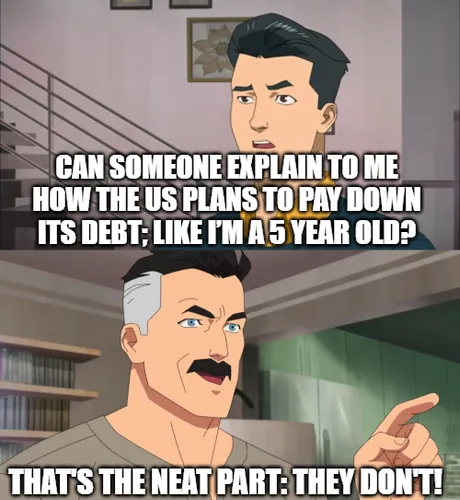
Conclusion
The hard truth of the matter is that the mainstream way of explaining HBD to the masses as though it is Hive's debt stems from the fact that there actually isn't any other good way to explain it. When people see HBD for the first time they want to know how it works within the context of systemic failure. How can HBD fail? What gives HBD its value? What guarantees do I have that the peg won't crash to zero like UST and other algo stable coins like IRON?
When coming at it from this kind of newbie skeptic perspective, yes... it makes sense to call HBD: Hive debt collateralized by 30% of Hive's total market cap with a haircut. But once we already know all the things about HBD it becomes more and more clear that it isn't debt at all. It doesn't tick any of the boxes or requirements for debt and is clearly new money owed to no one.
So while describing HBD as debt displays the robustness of the system and is a guarantee that holders aren't going to get burned like other algo derivatives... it's still a wildly inaccurate description of the actual product given a deep dive into the issue. HBD is a complicated system, and it will only get more complicated and we build atop it and create more infrastructure around it. Trying to explain it using debt-based legacy finance logic is eventually going to fail entirely. Crypto tokenomics and legacy debt-based economics are neither compatible nor comparable.
It is known.
Posted Using LeoFinance Beta
Return from Why HBD is not Debt to edicted's Web3 Blog
